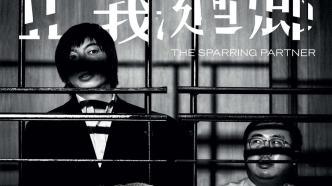
Note: This article contains spoilers
Produced by Weng Ziguang, directed by He Juetian, and starring Yang Weilun, Mai Peidong and Su Yuhua, the movie "The Corridor of Justice" led the Hong Kong Film Awards with 16 nominations, and it was in the limelight for a while.
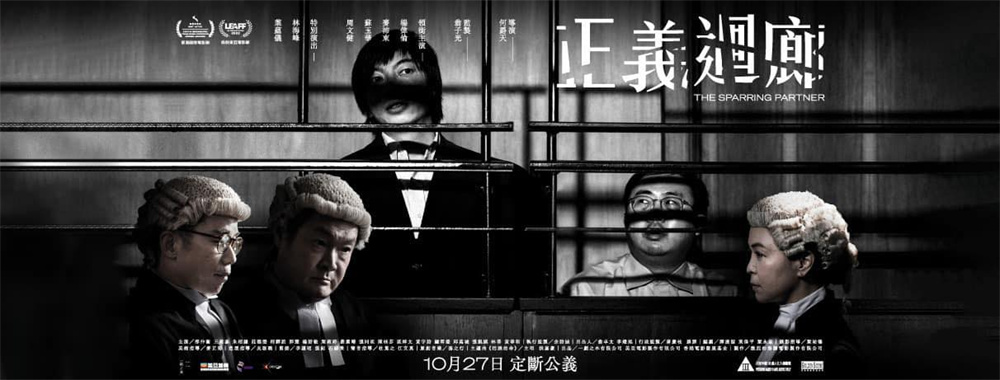
"The Corridor of Justice" poster
The film is adapted from a "reverse son killing case" that caused a sensation in Hong Kong in 2013. Zhang Xianzong (played by Yang Weilun) and his roommate Tang Wenqi (played by Mai Peidong) killed their biological parents in a tenement building and buried the bodies of the two elderly people. After dismemberment, hide in the refrigerator. When the case entered the judicial process, both of them denied the charge of murder, and senior prosecutors Wu Guanfeng (played by Lin Haifeng) and You Jiali (played by Su Yuhua) became their defense lawyers respectively. During the trial, Zhang Xianzong chose to give up his defense, while Tang Wenqi dismissed the charges completely. Prosecutor Zhu Ailun (played by Zhou Wenjian) and the two chief judges tried their best. Nine jurors with different backgrounds also had heated discussions.
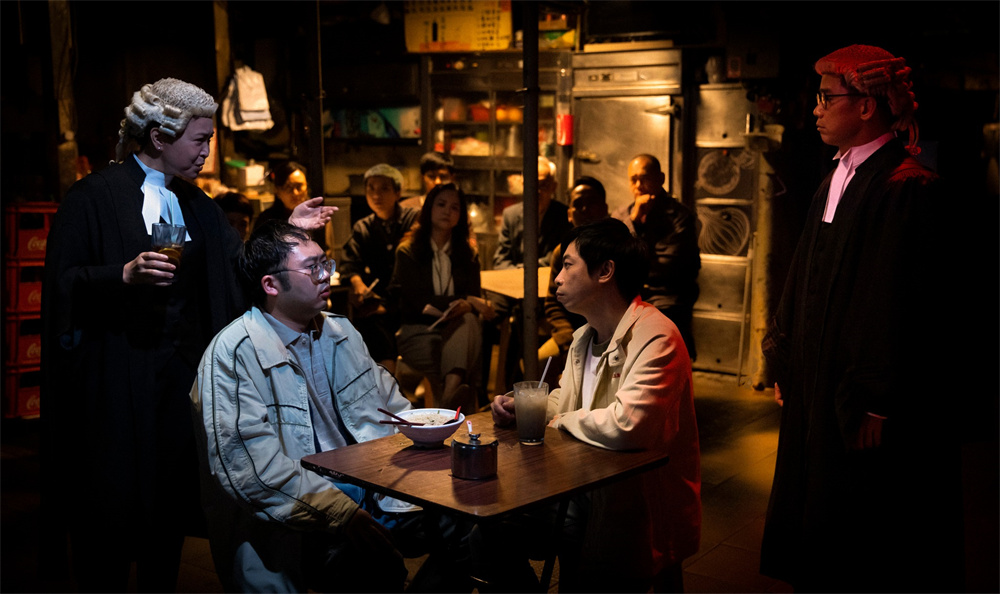
Yang Weilun and Mai Peidong were both shortlisted for Best Actor in the Academy Awards.
The highlight of "The Corridor of Justice" lies in the wonderful confrontation between the two defendants, the prosecution and the defense, especially whether the second defendant Tang Wenqi can be convicted and whether the jury can reach a consensus, which once became the biggest suspense of the film and affected the audience. mood. From the sympathy for him at the beginning, it gradually turned into doubts, until he completed a series of logical and rigorous answers, which made the audience further doubt: Is he really the weak side? Or are you playing weak? Mai Peidong's interpretation, exaggerated and with a bit of expression, is commendable.
In contrast, the scene of the first defendant, Zhang Xianzong, despite the horrific crime methods, indifferently asked the police for help afterwards, and accepted the interview in a serious manner. The details of the background are full, but there are not enough surprises. Zhang Xianzong's criminal motives stemmed from the unfair treatment he had received since he was a child, the partiality of his parents, the pua in the process of growing up, the low self-esteem in height, and the many troubles on the way to find a job. anger.
In the end, a contract for the transfer of real estate became the fuse. As a person who wants to be an actor, Zhang Xianzong's life is his biggest performance stage. This "Guan Zhong" character design has actually appeared in many crime-themed film and television works. As expected, it is a bit plain. Yang Weilun is not relaxed enough in the handling of micro-expressions in the main scene. However, the explosive scene between him and the big brother at the end of the film was well acted.
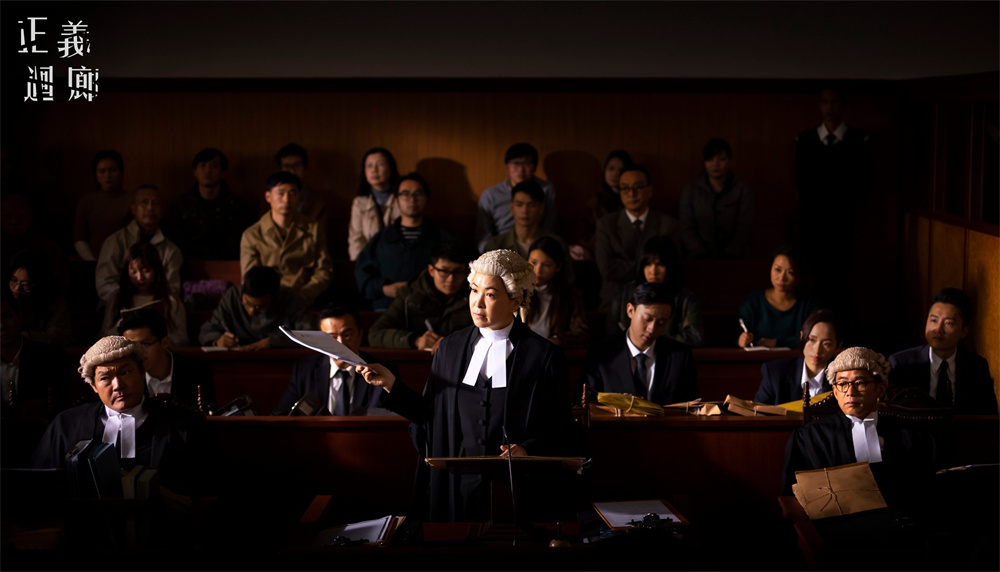
Su Yuhua was nominated for Best Actress at the Academy Awards for this film.
"The Corridor of Justice" is director He Juetian's first feature film. He said that what he wants to explore is the meaning of the existence of the court. "Is the court a place to find truth and justice? Or is it a stage for performance? The prosecution and the defense have different reasons Try to convince the jury to influence their final decision." Therefore, procedural justice must become the main theme of this film. Using the stage play to reorganize the case in front of the jury, this shooting technique is worthy of recognition. The brilliance of "The Corridor of Justice" is precisely that such a stage is set up. After you sing, I will appear on the stage, showing all aspects of the judicial process in a bloody way. For example, in a media trial, will the jurors have a preset position? Will the crying of the witnesses be too obvious to sympathize with the jurors? These off-site factors are all systemic difficulties worth pondering.
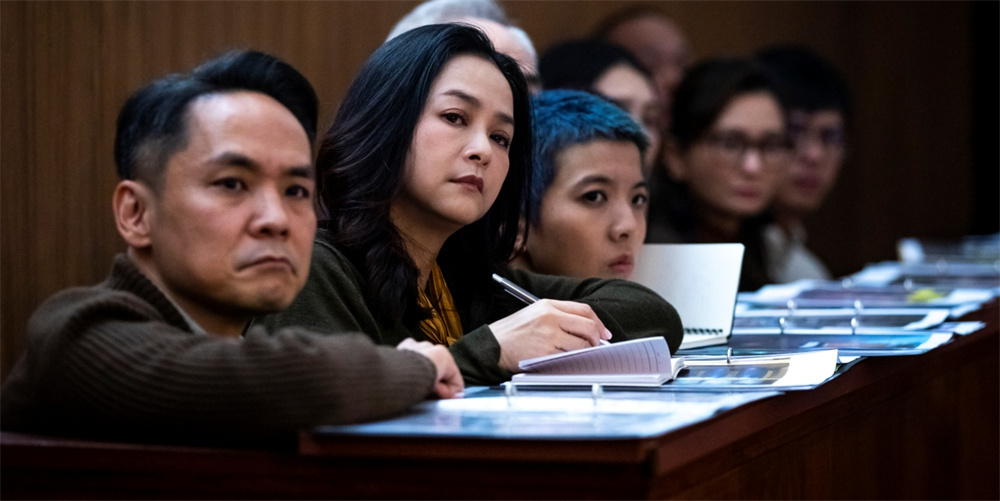
The jury is one of the highlights of this film.
Due to the bloody and violent parts, "The Corridor of Justice" was classified as a third-level film when it was released in Hong Kong. The large-scale dialogues and close-ups test the ability of the film's director and screenwriter. The narrative technique with multiple lines coexists, weaves a large net, and the intention is good, but the expression in the landing part is mediocre. There are too many direct shots, which only give the audience an impact through sensory stimulation, but reduce the aftertaste of blank space and reduce the space for real thinking.
Many viewers compared this film with producer Weng Ziguang's previous work "Treading Blood and Seeking Plum Blossoms". In terms of bloodshed alone, "The Corridor of Justice" is even worse. But from the perspective of subject matter, it seems that it should be compared with "The Poisonous Lawyer", which has repeatedly broken the box office records of Hong Kong films recently. In particular, the phrase "before the law, the poor xx" has become a golden sentence common to both movies. They are both court scenes, but the styles of "The Bad Tongue Lawyer" and "The Corridor of Justice" are completely different: one is occasionally funny, the other is serious; If "The Poisonous Lawyer" is the beauty of imagination, "The Corridor of Justice" is the reality that punctures the fantasy.
Quite a coincidence, when "The Corridor of Justice" was released on the Blu-ray disc, it coincided with the Hong Kong media reporting the murder of Cai Tianfeng, a 28-year-old Hong Kong socialite, who was murdered by dismembering her body. Many netizens called this case "The Corridor of Justice 2".
What is different from this case is that the care for the people at the bottom of society is the background of "The Corridor of Justice". In the film, the anger and depression towards the real estate finally broke out through the strange case of subdividing the house; outside the film, the producer Weng Ziguang used his "nano building" to support the new director, and today's "Corridor of Justice" came into being.


